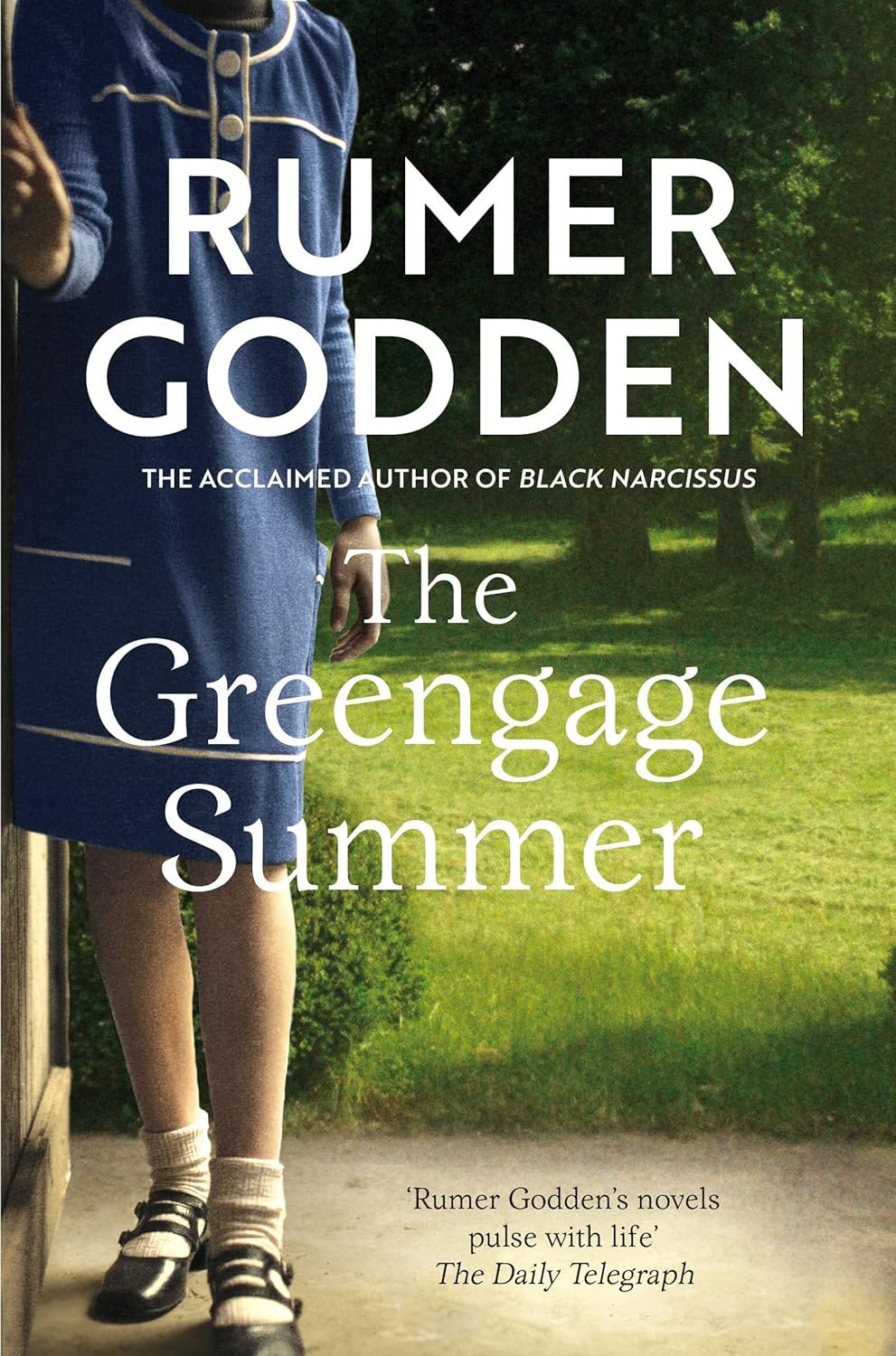Revisiting Rumer Godden’s classic The Greengage Summer
Charming, poignant, and not without bite.
The pale green plums hung low over the East Vancouver sidewalk. The plums glowed, not just in contrast with their dark green leaves, but with the promise of the refreshing tartness that biting into them would bring.
I couldn’t resist. There’s no taste that’s more summer than greengage plums. I reached and picked one. And—
“We don’t share our plums!” The woman’s shriek came from behind me. I didn’t look. Instead, with a backwards wave, I walked briskly on.
She kept shrieking, something about people who help themselves. But she didn’t chase after me. Phew! And of course, now being forbidden fruit, the plum tasted even better.
Taste buds activated memory. As a teenager, I’d devoured Rumer Godden’s classic novel The Greengage Summer. A few weeks ago, after the plum incident, I reread it. From the opening line—“On and off, all that hot French August, we made ourselves ill from eating the greengages”—I found the story as delicious and bittersweet as I remembered.
The narrator of The Greengage Summer is Cecil Grey, stuck at that most awkward of ages, 14. The summer of the title is the one she and her four siblings spend at a rural French hotel—surrounded, needless to say, by a shimmering green orchard of plum trees. The children range in age from the two Littles, as the older sisters call them, to Joss, just coming into glamour at 16.
Cecil finds Joss’s “blossoming,” as she sulkily calls it, unfair. But her younger, plainer sister-envy soon mixes with worry. The Greys, unchaperoned due to mother recovering in hospital from a horsefly bite, meet Eliot, a dashing if faintly sinister fellow English visitor. Eliot is instantly attracted to Joss and vice versa.
When I first read The Greengage Summer I, too, envied Joss. I wouldn’t have minded a charismatic older man gazing longingly at me, paying me gallant attentions. Now older, a mother, and (somewhat) more sensible, I mentally texted warnings to Joss while reading.
No spoilers, except to say that the enchanting Summer has some shocking plot twists, the latter including a final line that’s one of the best ever in a novel.
Another thing I noticed on revisiting Summer was the matter-of-fact way Godden portrays young Willmouse, as his sisters call him. Willmouse, particular about his neat appearance and absorbed in designing and sewing clothes for his dolls, is most likely gay—but Godden doesn’t make a fuss about it. He is who he is, and quite the little scene-stealer at that.
Yet another delightful element in a story plum-ful of them.
About the Author
Born in Sussex, England, Rumer Godden (1907-1998) spent much of her youth in India, which inspired many of her novels, notably Black Narcissus (1939). Both that and Greengage Summer were made into acclaimed films. Renowned for her lyrical writing and her wit, Rumer also wrote plays, children’s stories and memoirs. She was named an Officer of the Order of the British Empire (OBE) in 1993.
About the Reviewer
A Vancouver freelance writer/editor, Melanie Jackson is the author of such award-winning middle-grade/YA novels as the Dinah Galloway Mystery Series and Medusa’s Scream. The latter, a Canadian Children’s Book Centre Best Book of 2018, earned Melanie a TD-CCBC author tour.
Book Details
Publisher: Pan Macmillan, October 13, 2022
Language: English
Paperback: 240 pages.
ISBN: 9781529078404






Melanie! I have a copy of this... and need to read. As a younger child I read and re-re-read her "Miss Happiness and Miss Flower," which had, in its back pages, plans to build a Japanese home for the titular dolls. The book was magical.
Thank you for this! We'll have coffee yet... I've had a broken foot for the past 5 weeks...
Thanks for the review. It’s one Rumer Godden I have yet to read. ‘In This House of Brede’ possibly my favourite. Though ‘The Peacock Spring’ very good too.